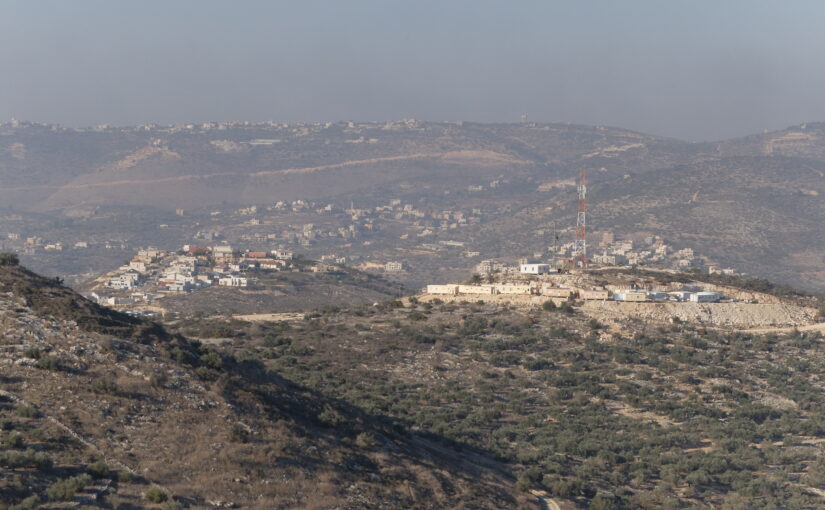Tag: Tulkarem
-
Israel’s attacks on refugee camps in the West Bank
By Diana Khwaelid — Northern West Bank — 8th May 2025 The Israeli occupation forces continue their aggression on the city of Tulkarm and its camp for the 102nd consecutive day, and for the 89th day on the Nur Shams camp East of the city with a continuous escalation of raids, inspections, and demolition of…
-
What Does Israel Want in The West Bank?
Northern West Bank By Diana Khwaelid Israel is carrying out massive military operations to displace residents of camps in the northern West Bank, unprecedented since the Second Intifada. Since the seventh of October, Israeli attacks on West Bank cities, especially in the north, have not stopped. We are talking about the cities of Jenin, Tulkarm, Tubas,…
-
West Bank: record amount of land stolen by Israel. More acres annexed since Oct. 7 than in 30 years
Beit Lid – North West Bank “Since October 7, while all eyes are on Gaza where they are destroying everything, the Israelis have seized the highest number of dunams ever here in the West Bank. “In one year they declared more hectares as ‘Israeli land’ than they had ever declared in the past 30 years,”…

